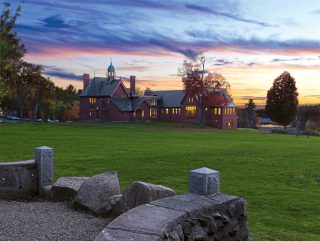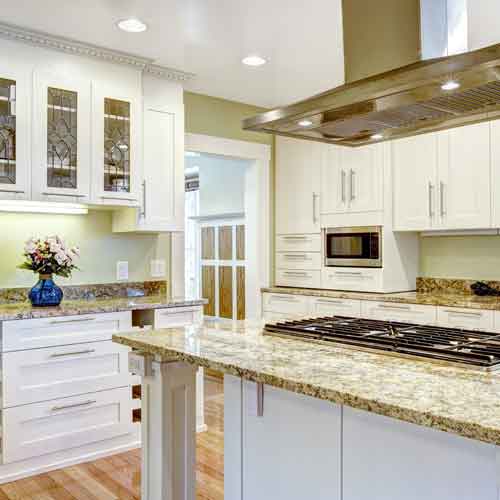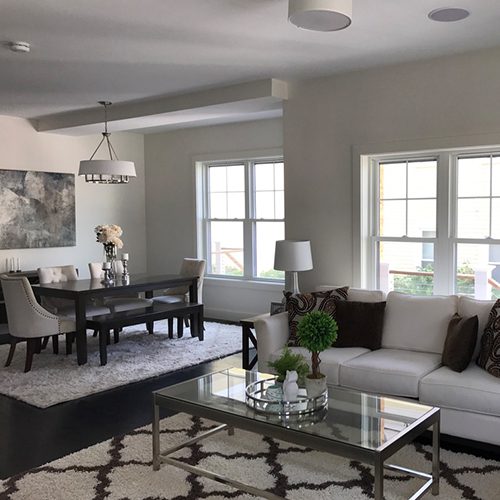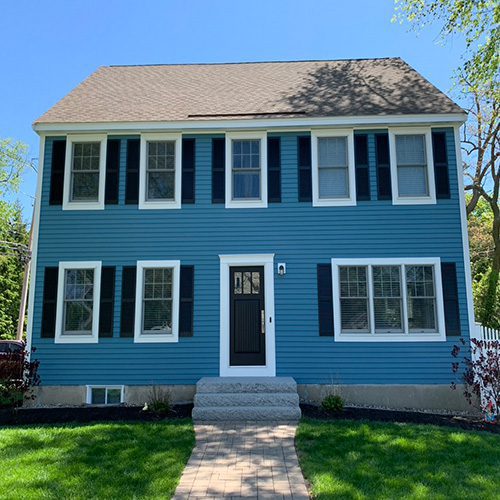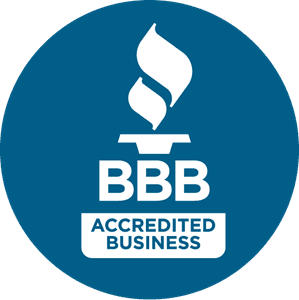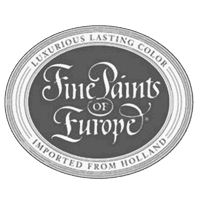Harvard Painting Company
★★★★★
Proline Painting Company: Your Trusted Painting Contractor in Harvard, MA
In Harvard, MA, when it comes to top-quality painting services, Proline Painting Company stands as a benchmark. Our professional team of skilled painters caters to both residential and commercial clients, delivering results that not only meet but exceed expectations. The Proline Painting Company, based in Harvard, MA, is a one-stop solution for all your painting needs, promising you an outcome that’s nothing short of perfect.
Do You Have These Problems?
- Difficulty finding a reliable painting company that delivers on their promise of quality?
- Experiencing delays and lack of professionalism from your current painting service?
- Struggling with painting companies that overcharge and fail to provide value for your money?
- Having trouble finding a painting service that offers both residential and commercial services?
- Concerned about the environmental impact of your painting projects?
Local Painting Company: Proline Painting Company — Harvard, MA
Proline Painting Company is proud to serve Harvard, MA as a local painting company with a solid reputation. With over a decade in business, we’ve built a name for ourselves by consistently delivering premium quality painting services. Our team comprises professionals who bring along years of experience, skill, and a deep understanding of how color impacts a space. As a local company, we’re deeply invested in our community and strive to improve it one painting project at a time.
Commercial Painting Services
At Proline Painting Company, we understand the unique requirements that commercial painting projects entail. Our Harvard team is trained to deliver fast and efficient services without disrupting your business operations. We handle everything from offices, retail stores, restaurants to large commercial complexes. With our commercial painting services, we guarantee a visually appealing workspace that embodies your brand identity and enhances productivity.
Residential House Painting Services
Home is where the heart is, and at Proline, we take that to heart. Our residential painting services are designed to transform your home into a space that reflects your personality and style. We treat every project with the same level of importance, whether it’s a single room or the entire house. Our professional painters in Harvard work diligently to ensure a clean, efficient, and timely completion of the project, resulting in a beautifully painted home that you can be proud of.
Painting Contractor Process
At Proline, we follow a systematic painting process to deliver top-notch results. Our painting process starts with an in-depth consultation where we understand your vision and requirements. We then prepare the area by protecting furniture, fixtures, and flooring, followed by surface preparation, which includes washing, scraping, sanding, and priming as needed. The final step is the application of the chosen paint in a meticulous manner. Our transparent process ensures you’re aware of each step we undertake to bring your vision to life.
Harvard’s Most Affordable Painters Rates
Our commitment to our clients extends to our pricing as well. At Proline, we believe in providing exceptional service at fair prices. Our painting company rates are competitive and transparent, with no hidden costs. We provide detailed estimates upfront, allowing you to understand exactly what you’re paying for. Our goal is to offer top-tier painting services that deliver excellent value for your investment.
5 Star Rated Painting Company Reviews
We take immense pride in the positive reviews we’ve received from our satisfied clients. Their words not only inspire us but also serve as a testament to our commitment to excellence. Our painting company reviews reflect our high standard of service, our professional approach, and our attention to detail. We encourage prospective clients to read these reviews to understand why Proline is a top-rated painting company in Harvard, MA.
Searching For a Painting Company Near You
If you’re searching for a reliable, professional, and affordable painting company near you, look no further than Proline Painting Company. Based in Harvard, MA, we offer comprehensive painting services to meet a variety of needs. We’re just a call away from transforming your space with high-quality, long-lasting paint jobs.
Painting Company Jobs In Harvard, MA
At Proline, we believe that our strength lies in our team. We’re always on the lookout for dedicated individuals to join us in delivering outstanding painting services. If you’re looking for rewarding painting company jobs, we encourage you to explore the opportunities at Proline. We offer a supportive work environment, competitive pay, and opportunities for growth.
Eco-friendly Painting Company
As an eco-friendly painting company in Harvard, we are committed to minimizing our environmental impact. We use low-VOC or VOC-free paints whenever possible and adhere to practices that reduce waste. Our goal is to deliver beautiful paint jobs while respecting the planet and contributing to a healthier environment.
Beloved House Painters in Harvard, MA
5-Rated On Google For Painting Contractors
Your home is not just a house and a structure with walls, ceilings, doors, rooms and windows but it serves as an expression of yourself, your character, and your personality. Our painting contractors have carefully picked local house painters who are ready to start a painting project with you! These expert painters will make sure that any painted room is a pleasant experience. At Proline Painting Service, we know that you will not settle for less, and that is why we have to ask you to consider one of the most respected painting contractor in Harvard, MA.
- Harvard Painting
- Full Service Painting Company
- Painting Services
- Harvard Painters Cost & Pricing
- Commercial Painters
- Painting Contractors
- Commercial Painting Contractors
- Exterior Painting
- Interior Painting
- Cabinet Painting
- Harvard Contractors
- General Contractor
- Home Remodeling Contractors
- Remodeling Contractors
- Drywall Contractors
- Kitchen Remodeling
- Bathroom Remodeling
- Basement Remodeling
- Office Painters
RESIDENTIAL & COMMERCIAL
Harvard Painting Company
Painting Company FAQs
How much does your painting service cost?
Every painting project is unique, and the cost can vary based on the size of the area, the complexity of the work, and the type of paint used. We provide a detailed, no-obligation estimate after assessing the project.
Do you offer commercial and residential painting services?
Yes, we provide both commercial and residential painting services. Our team has the expertise to handle projects of all sizes and complexities.
How long does a painting job usually take?
The duration of a painting job depends on several factors, including the size and condition of the area to be painted and the type of paint used. Once we assess your project, we can provide a more accurate timeline.
Can you provide references or examples of previous work?
Absolutely! We are more than happy to share references and examples of our work. Customer satisfaction is our top priority, and we are proud of the work we do.
What type of paint do you use?
We use only high-quality paints from reputable manufacturers. The specific type and brand of paint will depend on the project requirements and your preference.
Are your painters insured and licensed?
Yes, all our painters are fully insured and licensed. We believe in maintaining the highest standards of safety and professionalism in all our projects.
How do you prepare the area for painting?
We follow a thorough preparation process that includes covering furniture and fixtures, cleaning the surfaces, and doing any necessary repair work. Proper preparation is crucial for achieving the best results.
Do you offer a guarantee on your work?
Yes, we stand behind our work and offer a satisfaction guarantee. If there is any issue with the work done, we are committed to making it right.
Can you help with color selection?
Absolutely! We offer color consultation services to help you choose the perfect color palette that matches your taste and complements your space.
Are you an eco-friendly painting company?
Yes, we are committed to eco-friendly practices. We use environmentally-friendly paints and ensure our processes minimize waste and impact on the environment.
How do I choose a painting company?
Choosing a painting company involves considering factors such as experience, reputation, the range of services offered, pricing, and their approach towards customer service. It is also advisable to check reviews and ask for references.
How much do painting companies usually charge?
The cost of painting services varies depending on the scope and complexity of the project. Most companies provide a detailed estimate after assessing the project, allowing you to understand the costs involved.
What questions should I ask a painting company?
You should ask about their experience, licensing and insurance, the type of paints they use, their preparation and cleanup process, and if they offer a warranty or guarantee on their work.
Are there eco-friendly painting companies?
Yes, many painting companies, like Proline Painting Company, are committed to eco-friendly practices. They use environmentally-friendly paints and adopt procedures that reduce waste and minimize environmental impact.
What services do painting companies offer?
Painting companies offer a range of services including interior and exterior painting, commercial and residential painting, color consultation, surface preparation, and more.
How long do painting jobs take?
The duration of painting jobs depends on various factors such as the size of the project, the condition of the surfaces, and the type of paint used. A detailed estimate from the company should provide an approximate timeline.
How do painting companies prepare the area?
Painting companies prepare the area by cleaning and repairing the surfaces, protecting furniture and fixtures, and setting up equipment. A thorough preparation ensures a smooth painting process and superior results.
What type of paint is best for my project?
The best type of paint for your project depends on the surface to be painted, the desired finish, and the environment. A consultation with the painting company can help determine the best options for your specific needs.
Do painting companies provide color consultation?
Many painting companies provide color consultation services to help clients choose the perfect color scheme for their space. They consider factors like lighting, décor, and personal preferences to provide suitable recommendations.
Are all painting companies insured and licensed?
Reputable painting companies are insured and licensed to protect their clients and employees. It’s important to verify this information before hiring a painting company.
Harvard, MA Facts
Harvard OVERVIEW
Harvard, Massachusetts | |
|---|---|
Town | |
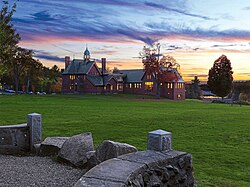 The renovated library, established in 1856 | |
 Seal | |
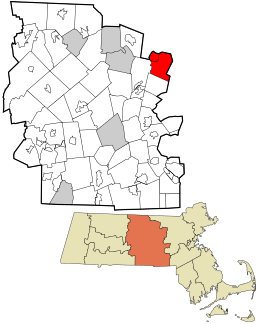 Location in Worcester County and the state of Massachusetts. | |
| Coordinates: 42°30′00″N 71°35′00″W / 42.50000°N 71.58333°W | |
| Country | United States |
| State | Massachusetts |
| County | Worcester |
| Settled | 1658 |
| Incorporated | 1732 |
| Government | |
| • Type | Open town meeting |
| • Town Administrator | Timothy P. Bragan |
| • Select Board |
|
| Area | |
| • Total | 27.0 sq mi (69.9 km) |
| • Land | 26.4 sq mi (68.3 km2) |
| • Water | 0.6 sq mi (1.6 km) |
| Elevation | 420 ft (128 m) |
| Population (2020) | |
| • Total | 6,851 |
| • Density | 250/sq mi (98/km2) |
| Time zone | UTC-5 (Eastern) |
| • Summer (DST) | UTC-4 (Eastern) |
| ZIP code | 01451 |
| Area code | 351 / 978 |
| FIPS code | 25-28950 |
| GNIS feature ID | 0619482 |
| Website | www.harvard.ma.us |
Harvard is a town in Worcester County, Massachusetts, United States. The town is located 25 miles west-northwest of Boston, in eastern Massachusetts. A farming community settled in 1658 and incorporated in 1732, it has been home to several non-traditional communities, such as Harvard Shaker Village and the utopian transcendentalist center Fruitlands. It is also home to St. Benedict Abbey, a traditional Catholic monastery. It is a residential town noted for its public schools, with its students ranking high in the state’s English and math examinations. The population was 6,851 at the 2020 census. The official seal of the town depicts the old town public library on The Common prior to renovations that removed the front steps.
History
Europeans first settled in what later became Harvard in the 17th century, along a road connecting Lancaster with Groton that was formally laid out in 1658. There were few inhabitants until after King Philip’s War, in which Groton and Lancaster were attacked and substantially destroyed. Over the next 50 years the population grew until it had reached a point adequate to support a church. A new town including parts of Lancaster, Groton, and Stow was incorporated in 1732, subject to the proviso that the inhabitants “Settle a learned and Orthodox Minister among them within the space of two years and also erect an House for the publick Worship of God.” It is uncertain how the town obtained its name, though the Willard family, among the first settlers and the largest proprietors in the new town, had several connections to Harvard College. According to The Harvard Crimson, Josiah Willard named the town after Harvard College, which he had attended, because the articles of incorporation had left the town unnamed. The first minister was Rev. John Seccombe, serving from 1733 to 1757.
In 1734, the town was considered to have five districts or villages. These were Oak Hill, Bare Hill, Still River, Old Mill, and Shabikin, present day Devens.
One notable early enterprise based in Harvard was the Benjamin Ball Pencil Company, which produced some of the first writing instruments made in the United States. They operated in the Old Mill district from 1830 to 1860. Despite this and other limited manufacturing, the town economy was primarily based on agriculture until the middle of the 20th century. This past is most prominently visible in the number of apple orchards. These apple orchards produce many apple products every year the most notable being apple cider. It is now mostly a residential “bedroom community” for workers at companies in Boston and its suburbs. Harvard has had a relatively quiet history, but has attracted several “non-traditional” communities that have given its history some flavor.
The Shakers
One part of town is the site of Harvard Shaker Village, where a utopian religious community was established. During a period of religious dissent, a number of Harvard residents, led by Shadrack Ireland, abandoned the Protestant church in Harvard. In 1769, they built a house that later became known as the Square House. Not long after Ireland’s death in 1778, the Shaker Founder Mother Ann Lee met with this group in 1781 and the group joined her United Society of Believers in Christ’s Second Appearing, or Shakers.
It was the first Shaker settlement in Massachusetts and the second settlement in the United States. The Harvard Shaker Village Historic District is located in the vicinity of Shaker Road, South Shaker Road, and Maple Lane. At its largest, the Shakers owned about 2,000 acres of land in Harvard. By 1890, the Harvard community had dwindled to less than 40, from a peak of about 200 in the 1850s. In 1917 the Harvard Shaker Village was closed and sold. Only one Shaker building is open to the public, at Fruitlands Museum; the remaining surviving buildings are in private ownership.
Nationally, 19 Shaker communities had been established in the 1700s and 1800s, mostly in northeastern United States. Community locations ranged from Maine to Kentucky and Indiana. The Shakers were renowned for plain architecture and furniture, and reached its national peak membership in the 1840s and 1850s. The Shaker community’s practice of celibacy meant that to maintain its population, it was always necessary to have new outsiders join. The improving employment opportunities provided by the Industrial Revolution would over the middle decades of the 1800s diminish the attractions of joining the Shaker community. Today, only one church “society” remains open, run by the last Shakers at Sabbathday Lake Shaker Village in New Gloucester, Maine.
Fruitlands
Amos Bronson Alcott relocated his family, including his ten-year-old daughter, Louisa May Alcott, to Harvard in June 1843. He and Charles Lane attempted to establish a utopian transcendentalist socialist farm called Fruitlands on the slopes of Prospect Hill in Harvard. The experimental community only lasted 7 months, closing in January 1844. Fruitlands, so called “because the inhabitants hoped to live off the fruits of the land, purchasing nothing from the outside world”, saw visits from the likes of Henry David Thoreau and Ralph Waldo Emerson. Louisa May Alcott used her experience at Fruitlands as an inspiration for her novel Little Women.
Clara Endicott Sears, whose Prospect Hill summer estate, The Pergolas, restored Fruitlands and opened it as a museum in 1914. On the grounds of Fruitlands Museum there is also a Shaker house, which was relocated there from Harvard’s Shaker Village by Sears in 1920. It is the first Shaker museum ever established in the United States. In addition, Sears opened a gallery on the property dedicated to Native American history. Sears became interested in Native Americans after Nipmuck arrowheads were found around her property on Prospect Hill, which the Nipmuck Indians had called Makamacheckamucks.
Originally, Sears’ Fruitlands property spanned 458 acres (1.85 km), but in 1939, 248 acres (1.00 km2) were seized by eminent domain for expansion of Fort Devens. As of 2010, that land is now part of the Oxbow National Wildlife Refuge.
Fiske Warren Tahanto Enclave
Fiske Warren, a follower of Henry George, attempted to establish a single tax zone in Harvard in 1918. The enclave bought up land (previously owned by the recently disbanded Shaker community) communally and attempted to manage the land according to George’s principles. The enclave disbanded shortly after Warren died in 1938. His house was added to the National Register of Historic Places in 1996.
St. Benedict Center
Father Leonard Feeney was a Jesuit priest who held to a literal interpretation of the doctrine “Extra Ecclesiam nulla salus” (or “outside the Church there is no salvation”). Feeney was excommunicated in 1953. Under the direction of Feeney, Catherine Goddard Clarke and others organized into a group called the Slaves of the Immaculate Heart of Mary, an unofficial Catholic entity. In January 1958, the community moved from Cambridge to the town of Harvard. Eventually, the original community split into several groups: the Benedictines, the Sisters of Saint Ann’s House and Sisters of St. Benedict’s center, Slaves of the Immaculate Heart of Mary. A further split later occurred with some members of the Slaves of the Immaculate Heart of Mary leaving to establish a separate group in New Hampshire. A branch of the Saint Benedict Center is located in Still River, on the west side of Harvard.
St. Benedict Abbey
In Still River there is an abbey of Benedictine monks that branched from the St. Benedict Center. There are six brothers and seven priests. They focus on reverently saying Mass in both the pre-Vatican II and the post-Vatican II forms and chanting the Divine Office in Latin. Their current abbot is the Right Reverend Xavier Connelly, OSB, who was elected June 16, 2010.
Geography
According to the United States Census Bureau, the town has a total area of 27.0 square miles (70 km), of which 26.4 square miles (68 km2) is land and 0.6 square miles (1.6 km), or 2.26%, is water.
The town is largely wooded with small rolling hills, fields, and wetlands. In addition to the numerous streams and brooks throughout Harvard, Bare Hill Pond is a central, iconic locale.
Harvard and the surrounding area are renowned for apple orchards and riding stables.
Surrounding towns
Harvard is located in MetroWest, surrounded by the seven municipalities of Ayer, Littleton, Bolton, Boxborough, Stow, Lancaster and Shirley
Demographics
| Year | Pop. | ±% |
|---|---|---|
| 1850 | 1,630 | — |
| 1860 | 1,507 | −7.5% |
| 1870 | 1,341 | −11.0% |
| 1880 | 1,253 | −6.6% |
| 1890 | 1,095 | −12.6% |
| 1900 | 1,139 | +4.0% |
| 1910 | 1,034 | −9.2% |
| 1920 | 2,546 | +146.2% |
| 1930 | 987 | −61.2% |
| 1940 | 1,790 | +81.4% |
| 1950 | 3,983 | +122.5% |
| 1960 | 2,563 | −35.7% |
| 1970 | 12,494 | +387.5% |
| 1980 | 12,170 | −2.6% |
| 1990 | 12,329 | +1.3% |
| 2000 | 5,981 | −51.5% |
| 2010 | 6,520 | +9.0% |
| 2020 | 6,851 | +5.1% |
| * = population estimate. Source: United States census records and Population Estimates Program data. | ||
As of the census of 2000, there were 5,981 people, 1,809 households, and 1,494 families residing in the town. The population density was 226.9 people per square mile (87.6/km2). There were 2,225 housing units at an average density of 84.4 per square mile (32.6/km). The racial makeup of the town was 91.69% White, 4.50% African American, 0.17% Native American, 1.97% Asian, 0.05% Pacific Islander, 0.50% from other races, and 1.12% from two or more races. Hispanic or Latino of any race were 6.09% of the population.
There were 1,809 households, out of which 44.7% had children under the age of 18 living with them, 73.4% were married couples living together, 6.9% had a female householder with no husband present, and 17.4% were non-families. 14.3% of all households were made up of individuals, and 4.3% had someone living alone who was 65 years of age or older. The average household size was 2.86 and the average family size was 3.18.
In the town the population was spread out, with 26.6% under the age of 18, 4.0% from 18 to 24, 29.5% from 25 to 44, 32.3% from 45 to 64, and 7.6% who were 65 years of age or older. The median age was 41 years. For every 100 females there were 124.7 males. For every 100 females age 18 and over, there were 133.6 males.
The median income for a household in the town was $117,934, and the median income for a family was $139,352. Males had a median income of $90,937 versus $49,318 for females. The per capita income for the town was $50,867. About 0.5% of families and 2.0% of the population were below the poverty line, including 0.7% of those under age 18 and 7.1% of those age 65 or over.
The decline in the population of the town of Harvard from the 1990 census to the 2000 U.S. census is attributable to the 1996 closure of Fort Devens, a U.S. military installation and the departure of military personnel and families residing at Fort Devens, which in large part is within the territory of the town of Harvard. The Fort Devens property has in large part been converted to civilian use, under the direction of MassDevelopment, a development authority of the Commonwealth of Massachusetts.
Government
The town elects five members to the Board of Selectmen to run the town day-to-day and has an annual Town Meeting to pass/amend the town bylaws and approve the town budget.
| County-level state agency heads | |
|---|---|
| Clerk of Courts: | Dennis P. McManus (D) |
| District Attorney: | Joe Early Jr. (D) |
| Register of Deeds: | Katie Toomey (D) |
| Register of Probate: | Stephanie Fattman (R) |
| County Sheriff: | Lew Evangelidis (R) |
| State government | |
| State Representative(s): | Danillo Sena (D) |
| State Senator(s): | James B. Eldridge (D) |
| Governor’s Councilor(s): | Marilyn M. Petitto Devaney (D) |
| Federal government | |
| U.S. Representative(s): | Lori Trahan (D) (3rd District) |
| U.S. Senators: | Elizabeth Warren (D), Ed Markey (D) |
Schools
Harvard serves one public K–5 elementary school; the Hildreth Elementary School, and one public 6–12 middle/high school; the Bromfield School.
When the town constructed the current building housing the Bromfield School middle and high school, the town successfully resisted the Massachusetts School Building Authority efforts to regionalize its school system with other towns; the School Building Authority partially funds new school buildings and renovations. Harvard’s Kindergarten through grade twelve school system ranks among the top 5% of schools in the state according to some authorities, and more than 97% of its graduates go on to college. The public high school, the Bromfield School, and the Hildreth Elementary School are both located in the center of town on Massachusetts Avenue Bromfield has its ranks in nationwide tests in the top 20 and HES has them for MCAS (Massachusetts Comprehensive Assessment System) in the top 5.
Library
The public library of Harvard opened in 1856. In fiscal year 2008, the town of Harvard spent 2.41% ($487,470) of its budget on its public library—approximately $81 per person and since then the library has undergone multiple renovations.
Notable people
- Amos Bronson Alcott, teacher, writer and Transcendentalist, Fruitlands founder
- Louisa May Alcott, novelist, daughter of Amos Alcott
- Cornelius Atherton, inventor and steel maker. Blacksmith, built muskets for the Revolutionary Army
- Peter Atherton, 18th-century colonial leader
- Simon Atherton, early American Shaker who sold herbs in and around Boston
- Tabitha Babbitt, tool maker
- T. A. Barron, author of fantasy novels
- Del Cameron, Hall of Fame harness racing driver and trainer
- Theodore Ward Chanler, American composer
- Adam Dziewonski, geophysicist
- Jonathan Edwards, musician
- William Emerson, minister and father of Ralph Waldo Emerson
- Fannie Farmer, cookbook author
- Donald Featherstone, created the plastic flamingo lawn ornament
- Leonard Feeney, controversial Jesuit priest and founder of St. Benedict Center
- Levi Hutchins, clockmaker, inventor of the American alarm clock
- Shadrack Ireland, religious leader
- Lynn Jennings, Olympic runner
- Charles Lane, Transcendentalist, Fruitlands founder
- George F. Lewis, proprietor of newspapers
- Keir O’Donnell, Australian-born actor, Bromfield Class of 1996
- Joseph Palmer, Transcendentalist; known for his beard
- Willard Van Orman Quine, American philosopher and logician
- Clara Endicott Sears, founder of Fruitlands Museum
- John Seccombe, religious leader, author
- Ted Sizer, educational reform leader
- Maurice K. Smith, architect
- Fiske Warren, supporter of Henry George’s land value tax or single tax system
- William Channing Whitney, architect
- Gary K. Wolf, creator of Roger Rabbit
- Otto Thomas Solbrig, Renowned biologist
Houses of worship
- Harvard Unitarian Universalist (Unitarian)
- Harvard United Church of Christ (Congregational)
- Saint Benedict Center / St. Benedict Abbey (Benedictine)
- Saint Theresa, the Little Flower Church (Roman Catholic)
- Seeds of Faith Church
See also
- Harvard Ambulance Service
- Harvard Historical Society
- Harvard Center Historic District
- Frederick Fiske and Gretchen Osgood Warren House
- Harvard Shaker Village Historic District
References
Notes
Further reading
- Nourse, Henry S. (1894). History of the Town of Harvard, Massachusetts 1732-1893. Clinton, Massachusetts: Warren Hapgood. Retrieved July 7, 2011.
- Anderson, Rober C. (1976). Directions of a town: a history of Harvard, Massachusetts. Harvard, Massachusetts: Harvard Common Press.
External links
- Official town website
- Harvard Historical Commission
- Harvard Public Schools
- Harvard Public Library
- Fruitlands Museum
- St. Benedict Abbey
- The Harvard Hillside Newspaper
- The Harvard Press
- The Harvard Post Newspaper
- Fannie Farmer House
- Shaker Historic Trail
★★★★★

